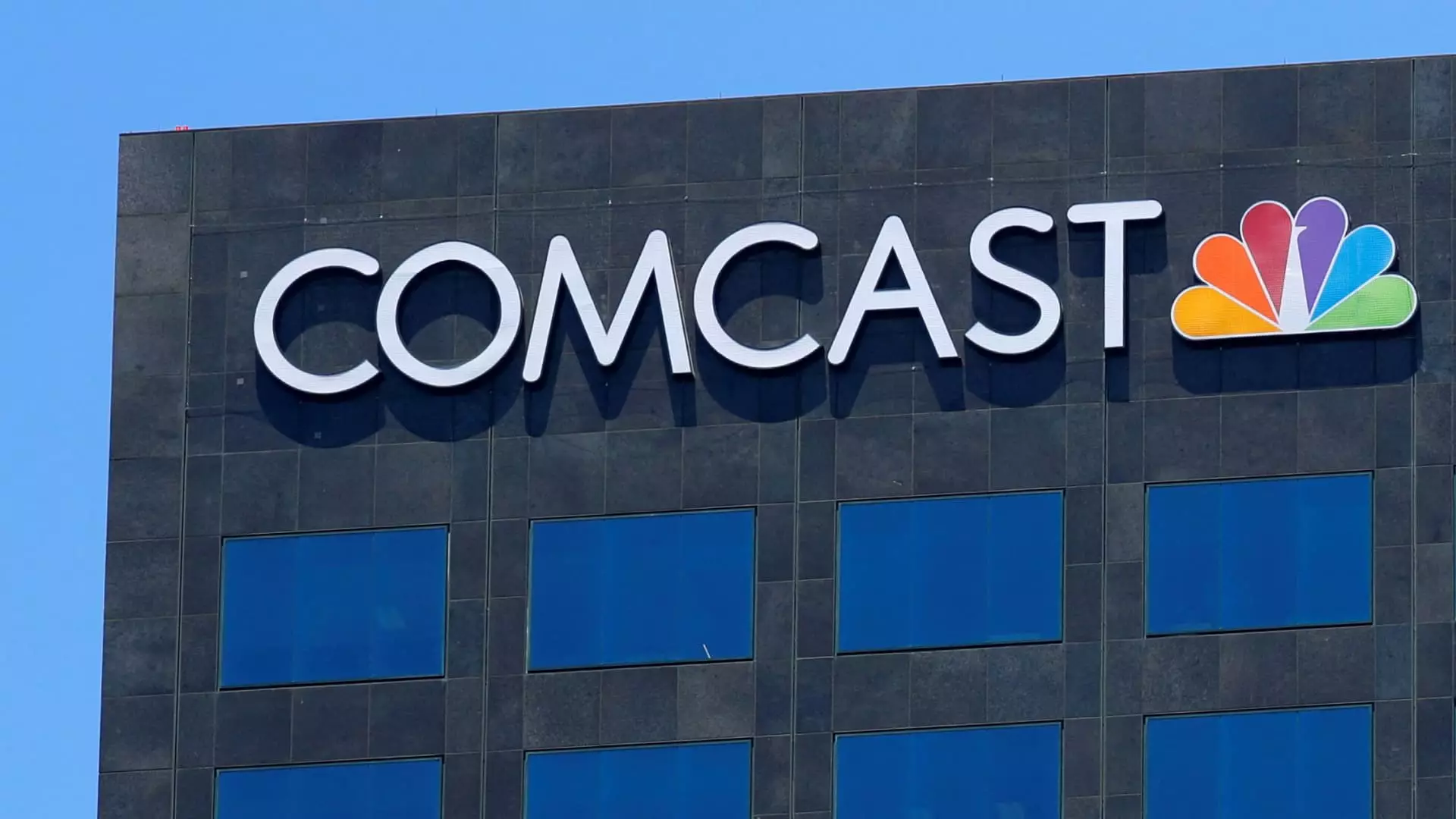The media landscape is undergoing a seismic shift, and Comcast is no exception. The company is taking a bold step by moving forward with the spinoff of its cable network channels, a decision that illustrates not only its adaptability but also its strategic foresight in navigating the complexities of modern broadcasting. As millions of subscribers abandon traditional pay-TV in favor of streaming services, this transition is poised to redefine Comcast’s corporate structure and market approach.
In a world where streaming giants constantly vie for audience attention, traditional cable networks face a crucial challenge. The ongoing shift away from cable subscriptions has compelled Comcast, a leading player in the industry, to reassess its business model. According to reports from CNBC, the separation of cable networks is projected to conclude in approximately one year, signaling Comcast’s proactive stance in reshaping its operational framework. The primary aim is to cultivate a more agile company that can synergize with other network entities or possibly attract private equity investments.
The decision is rooted in high-level discussions about creating a “well-capitalized company” that provides shareholders with long-term growth prospects. The transfer of leadership to seasoned executives core to the cable industry, such as Mark Lazarus and Anand Kini, affirms the company’s commitment to navigating this transition carefully while staying aligned with market demands.
As the spinoff takes shape, leadership dynamics within Comcast and NBCUniversal will also evolve. Mark Lazarus, the chairman of NBCUniversal’s media group, is set to lead the new entity. This indicates a strategic choice to put experienced leaders at the helm during a time of change. Financial oversight will be in the capable hands of CFO Anand Kini, who will also take on the role of operating chief for the newly formed company.
In addition to these changes, Comcast Chairman and CEO Brian Roberts will retain an influential position through voting rights but will step back from traditional officer responsibilities. This subtle shift illustrates a desire to introduce fresh leadership while maintaining continuity in corporate governance. Meanwhile, NBCUniversal will witness significant restructuring as executive roles are reassigned to respond to the evolving demands of the media industry.
The financial landscape surrounding this spinoff has already prompted positive movements in the stock market. Following the announcement, Comcast shares experienced a notable increase of more than 2% in after-hours trading—an indication of investor confidence in this strategic shift. Despite the traditional pay-TV model facing challenges due to cord-cutting trends, networks still deliver substantial revenue. Comcast’s recent quarterly earnings report indicated a striking 37% revenue increase in its media segment, largely driven by events like the Olympics. This underscores the potential profitability of the cable networks even as consumer habits evolve.
The tax-free aspects of the spinoff also add a layer of complexity and benefit, ensuring that the separation does not impose additional financial burdens on shareholders. Maintaining a similar share structure to Comcast’s will further ensure stability during this transformative period.
While the spinoff of Comcast’s cable networks—including E!, Syfy, Golf Channel, USA, and Oxygen—is a monumental event, it raises questions about content strategy and future collaborations. As consumer preferences continue to transition towards on-demand viewing, the emphasis on a seamless integration between traditional cable offerings and streaming platforms like Peacock will be critical.
Interestingly, Bravo will remain part of Comcast’s NBCUniversal due to its strong presence on Peacock, illustrating a deliberate strategy to leverage beloved content for streaming success. As audiences increasingly gravitate towards hybrid models of consumption, it will be vital for Comcast to exploit such synergies to maximize viewer engagement and revenue.
Comcast’s spinoff of its cable networks not only represents a strategic pivot in response to changing consumer behavior but also a commitment to realign its corporate identity with industry dynamics. With experienced leaders at the helm and a robust financial framework supporting the venture, the company is set to refine its operational focus. As Comcast embraces this transformation, the crossroads of traditional cable and the burgeoning world of streaming will define its future trajectory. The success of this spinoff will ultimately hinge on how effectively the new entity can leverage its strengths in an increasingly competitive landscape.

